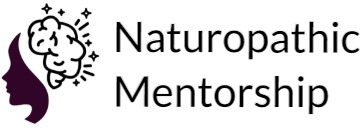Weight gain is one of the primary clinical features of hypothyroidism, a diagnostic criteria, and one of the most troublesome symptoms that women experience. Many women will come to your office hoping for you to help them understand and treat their thyroid, and ultimately correct their weight struggles. To this point, the exact mechanism of how thyroid function affects weight is unclear but we believe that it involves changes in ATP expenditure and in muscle and mitochondrial ‘uncoupling’ or energy utilization. Carbohydrate metabolism is also influenced by thyroid hormones. Additionally, a gene that has the ability to decrease thyroid function and response to treatment has also been associated with insulin resistance. It is the perfect storm for our patients in many cases! Given all of this, there are many reasons that your patients may not be responding to treatment. We will cover this and more in Advanced Women’s Therapeutics, but today I thought I would share some interesting research updates in the area of weight.
Irisin
Irisin is a myokine (muscle derived hormone) that is involved in blood sugar regulation and turning visceral and subcutaneous fat into brown fat. This brown fat is important in thermogenesis and basal metabolic rate. Recent research has made an association between irisin, muscle mass and Hashimoto’s thyroiditis, suggesting that those with untreated Hashimoto’s have low irisin levels. Treatment with synthroid seemed to correct low irisin levels but the big question here is what are the long term effects. (1)
What does this mean for your patients?
Hashimoto’s can go untreated for years or even decades and if irisin levels are affected throughout this window then it causes me to wonder what the long term impacts are on metabolism. Although no study has completed this research (hello researchers!) it would be fascinating to see the levels of total brown fat in a hypothyroid patient vs control after treatment. My clinical experience would suggest that it remains lower and contributes to ongoing issues with metabolism, thermogenesis, etc.
As Irisin is also involved in blood sugar control this is another area that could be affected. In my practice I am frequently monitoring glucose homeostasis and this is definitely an ongoing issue in many women with hypothyroidism. Irisin is also affected by exercise levels, so here is another motivating factor to get your patients moving!
Now correlation is not causation, we know this. But taking this research and overlaying it on patient experience can help to put into perspective the value of this study. This type of research is also highly motivating to patients who are looking to fit the pieces of the puzzle of their health back together.
Deiodinase type II (DIO2)
DIO2 is the enzyme that catalyzes the conversion of T4 into the more bioactive T3. Low T3 seems to be a growing issue in women’s health and a lot of the things we are doing to support it either directly or indirectly affect this enzyme. Selenium, antioxidant and glutathione support, inflammation support, iron – these are all factors affecting DIO2. Recently though, there has been a flurry of interest in the gene coding this enzyme as polymorphisms have been shown not only to decrease T4 to T3 conversion, but they are also associated with insulin resistance and poor glucose control (2,3,4). This is personalized medicine at its finest.
What does this mean for your patients?
If you are aware that your patient has a SNP in the DIO2 enzyme then you may be considering this patient as an ideal candidate for natural desiccated thyroid (NDT) and more regular monitoring of glucose and insulin homeostasis (2,3,4). Genes are not destiny by any means, but they can be very helpful when understanding personal responses to treatment.
- Martinez Munoz IY, Camarillo Romero EDS, Garduno Garcia JJ. Irisin a Novel Metabolic Biomarker: Present Knowledge and Future Directions. Int J Endocrinol. 2018;2018:7816806. Published 2018 Oct 9. doi:10.1155/2018/7816806
- Castagna, M. G., Dentice, M., Cantara, S., Ambrosio, R., Maino, F., Porcelli, T., … Salvatore, D. (2017). DIO2 Thr92Ala Reduces Deiodinase-2 Activity and Serum-T3 Levels in Thyroid-Deficient Patients. The Journal of Clinical Endocrinology & Metabolism, 102(5), 1623–1630. doi:10.1210/jc.2016-2587
- Park, E., Jung, J., Araki, O., Tsunekawa, K., Park, S. Y., Kim, J., … Lee, S. (2018). Concurrent TSHR mutations and DIO2 T92A polymorphism result in abnormal thyroid hormone metabolism. Scientific Reports, 8(1). doi:10.1038/s41598-018-28480-0
- Miller, M. W., Wolf, E. J., Sadeh, N., Logue, M., Spielberg, J. M., Hayes, J. P., … McGlinchey, R. (2015). A novel locus in the oxidative stress-related gene ALOX12 moderates the association between PTSD and thickness of the prefrontal cortex. Psychoneuroendocrinology, 62, 359–365. doi:10.1016/j.psyneuen.2015.09.003

